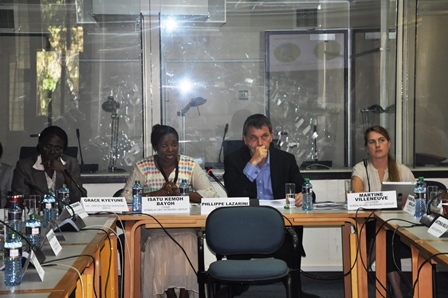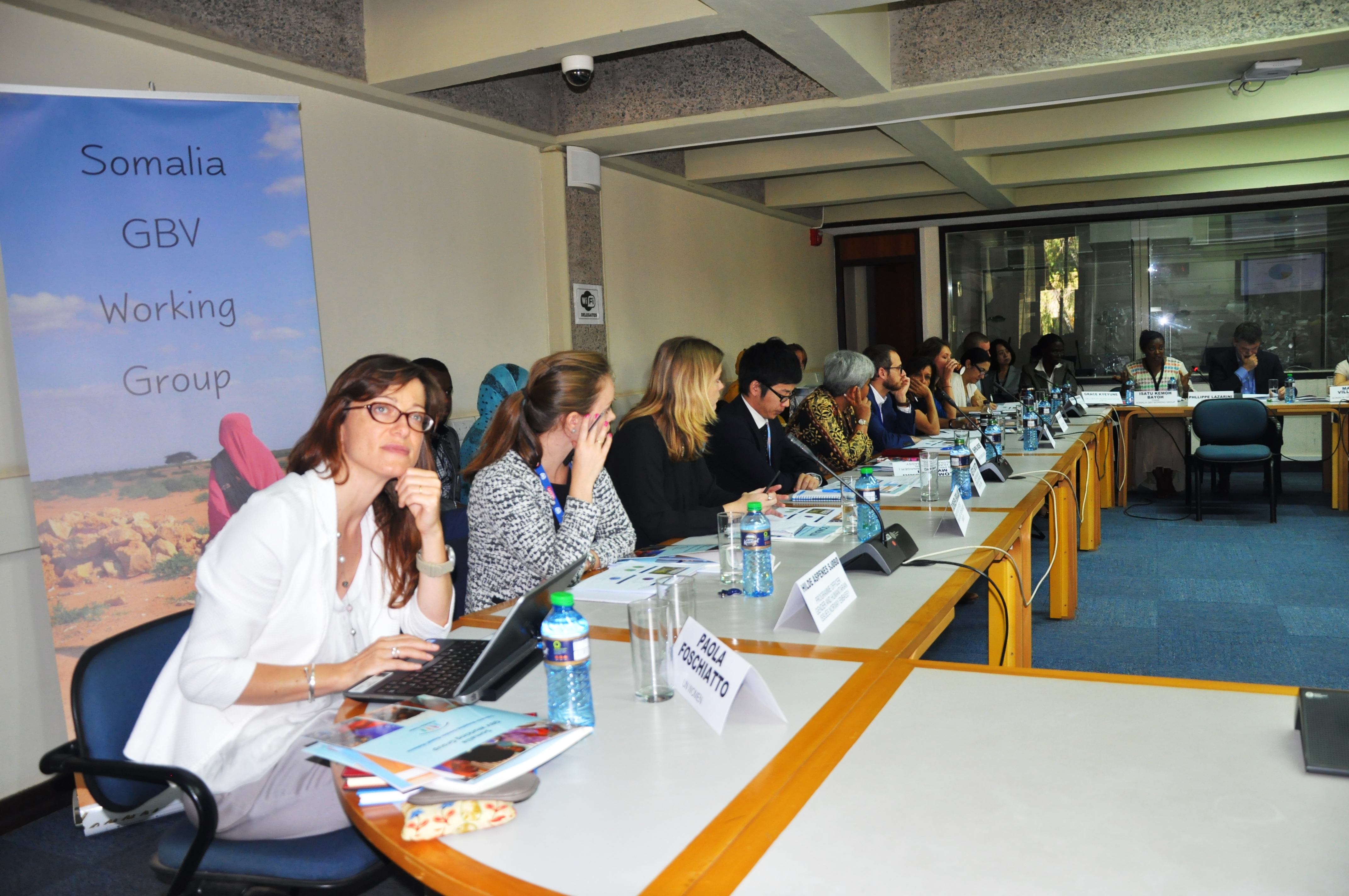Nairobi, 23 January 2015 - The Somalia Gender-Based Violence (GBV) Working Group, chaired by UNFPA and co-chaired by INTERSOS, launched an appeal for US$ 9.5 million to implement the country's GBV Working Group three-years-strategy, which aims to support the Somali Government and partners in reducing GBV against women and girls, men and boys thereby ensuring timely and accessible quality responses and services to survivors.
The strategy addresses the need for a coherent and long-term approach of all GBV actors, composed of the government, national and international NGOs and the UN, to coordinate activities around prevention and robust response to cases of GBV.
Somalia's almost three decades of protracted conflict has caused a serious humanitarian crisis, which is among the largest and most complex in the world, with about 2.9 million people in need of humanitarian assistance. This situation also exacerbates the occurrence of sexual violence, especially among the Internally Displaced Persons (IDP).
More than 75 percent of all GBV cases involve physical assault, rape and sexual assault. Although comprehensive data is difficult to come by, in the past year, well over 5,000 GBV cases were reported in the country. Many more cases, particularly of rape and sexual assaults, go unreported out of fear of social stigma, reprisals from perpetrators or retribution from communities.
However, the response to the incidents of GBV is not commensurate and far less than adequate. It is equally noteworthy and applicable for both coordinated preventative measures as well as response.
"Somalia is at a critical stage of rebuilding its legal, security and health institutions, presenting a unique opportunity to devise the necessary instruments to curb the incidence of gender-based violence, respond to it more effectively and end impunity for perpetrators," noted Philippe Lazzarini, UN Deputy Special Representative of the Secretary-General Resident Coordinator and Humanitarian Coordinator for Somalia at the donor meeting.

Lazzarini called upon all donors engaged in Somalia to extend the much needed support in implementing the GBV WG Strategy to scale up programmes and increase access to comprehensive services for survivors of GBV and strengthened effort for prevention.
The GBV Advisor to the Minister, Women and Human Rights Development Fadumo Mohamed Abdallah described GBV prevention as a key priority for the Somali Government's efforts and urged donors to support the important work of the GBV working group, which is aimed at protecting the most vulnerable and further strengthening the national capacity to address gender inequality and injustice in Somalia.

Chairperson of the national GBV working group for Somalia Isatu Kemoh Bayoh from UNFPA Somalia emphasised the need for concerted efforts in curbing GBV explaining that if left alone to deal with their ordeal, survivors often miss out on medical, psychosocial support and legal services and other forms of support emphasised
The GBV working group and its partners are already implementing activities to prevent GBV, including the development of legislation and policy framework to respond to GBV, the sexual offences bill and female genital mutilation legislation and policy, according to the co-chair of the group Martine Villeneuve from Intersos.

